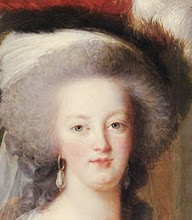Out of all the European authors to pen books set in WWII for younger readers, Gudrun Pausewang is my favorite. Her books do not shy away from realistic, even shocking, details nor do they gloss over the terrible circumstances experienced by the characters in her stories. The following three books are, as far as I am aware, the only three of her WWII-era novels which have been translated into English.
I highly recommend all of them for readers interested in WWII historical fiction, although I do think that most younger readers should be guided through the books (particularly The Final Journey) with an adult due to the subject matter. Pausewang does not sugarcoat, and the books can be difficult to get through--and difficult to forget once you've read them. But that is precisely why I consider her books some of the best WWII historical fiction out there, whether you're 13 or 93.
Dark Hours by Gudrun Pausewang
Dark Hours is set in the dying days of WWII Germany and follows a young teenager named Gisel who is fleeing the city with her two younger siblings, including an infant, along with her pregnant mother. Gisel and her brothers are separated when their mother goes into labor and they must attempt to travel to the countryside on their own. They are at a train station when an air raid siren goes off, and find themselves trapped in the air raid shelter bathroom, unable to leave because of rubble blocking the way. But they are not alone: an injured soldier is trapped in the men's bathroom on the other side of the wall, and as the hours tick by, Gisel, her brothers, and the soldier must do all they can to survive. As Gisel fights to keep herself--and her siblings--alive, she must confront the realities of the war, the Nazi Regime that has crumbled away, and her own hopes for the future.
Traitor by Gudrun Pausewang
Traitor begins in 1944 with a young teenager named Anna returning to visit her family in the small village of Stiegnitz, Mysterious tracks in the snow lead her to her family's barn, where she discovers an escaped Russian prisoner-of-war who is starving, ill and helpless. Anna is faced with an impossible decision: If she turns him in to the police, he will be killed. If she does nothing, he may be found and her family could be marked for not turning him in. She ultimately decides to hide the man, named Maxim, and care for him, even though it means her own life is forfeit if she were to ever be discovered. As the months of secrecy drag on, Anna becomes weighed down by the knowledge that each step she takes to save Maxim brings them both closer to discovery.
The Final Journey by Gudrun Pausewang
The Final Journey opens with an 11-year old girl named Alice being forced into a cattle car with her doting grandfather and almost 50 other people. Alice does not know where she's going, nor why they have been forced onto the car, although her grandfather attempts to placate her with answers that she knows aren't quite right. As the journey on the train continues, Alice and the other men, women and children forced into the car must deal with the mundane details of human life in an extraordinary setting: basic bathroom functions become a fiercely debated topic, a pregnant woman goes into labor and must give birth without any real medical care, and food and water become scarce and violently defended resources. Alice, who has been kept naive to the real circumstances of her parent's disappearance weeks earlier, begins to learn the secrets of life--including her own life--as she takes what will be her final journey.




